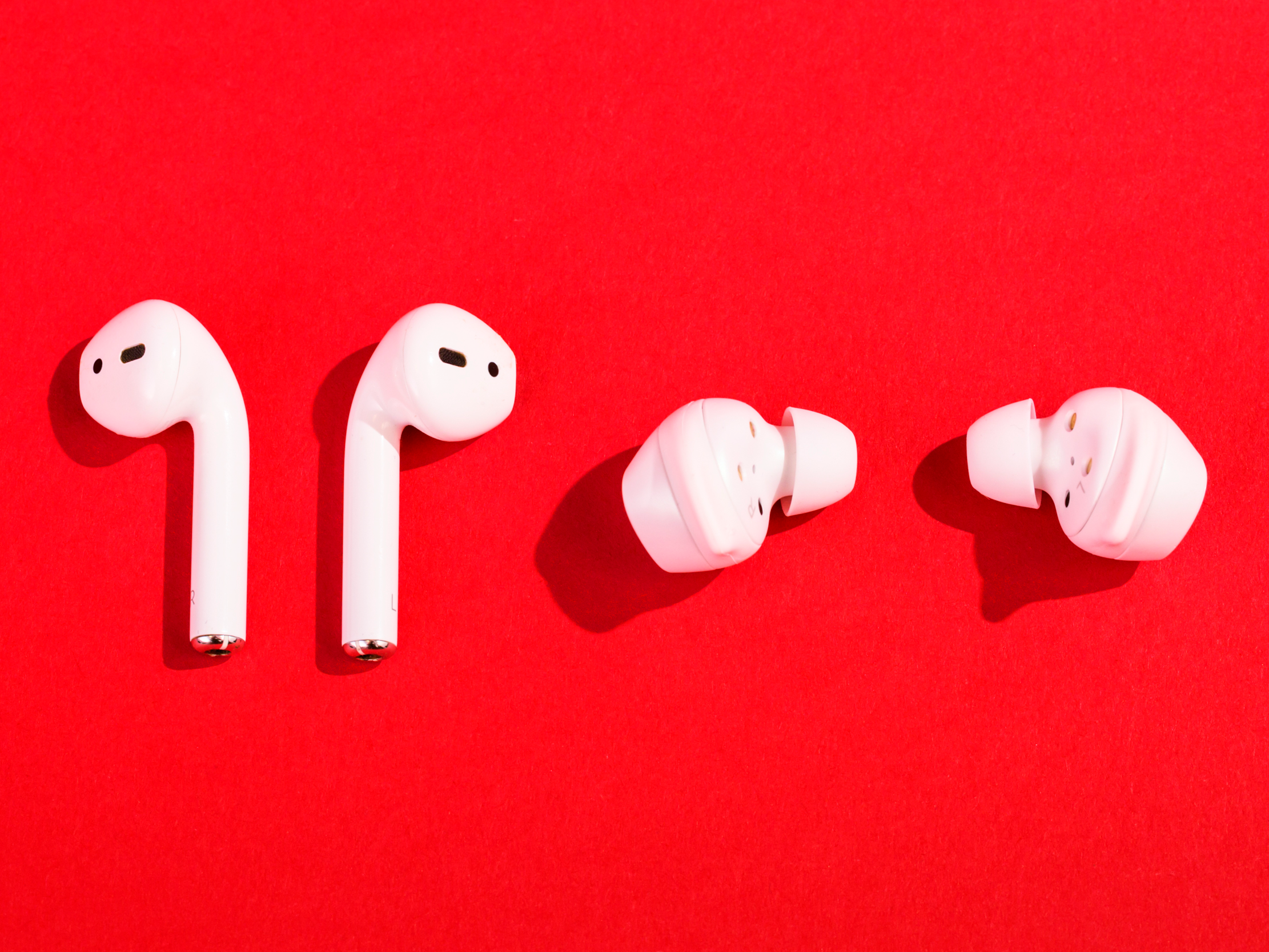- Apple and Samsung each recently debuted a pair of truly wireless earbuds: the second-generation AirPods, and the Galaxy Buds.
- The two earbuds are pretty similar, with wireless-charging cases, touch controls, and voice commands.
- But they have some significant differences in sound quality, and your choice may very well depend on the type of phone you own.
Since Apple launched the first-generation AirPods in late 2016, the audio market has gone all in on truly wireless earbuds.
Major audio-tech and wearable-tech companies, including Jaybird, Anker, and Xiaomi, have released their own takes on the concept to go up against the AirPods.
Samsung recently released its Galaxy Buds to go alongside its new Galaxy S10 smartphone lineup. And just last week, Apple announced the long-awaited second-generation AirPods, bringing better battery life and enhanced Siri integration, among other things.
I got to try both the Galaxy Buds and the new AirPods. Here’s how they stack up.
The second-generation AirPods, announced last Wednesday, have the same design as the original version but with additions like "Hey Siri," a feature to summon Siri with just your voice. Apple says one charge of the AirPods allows for up to five hours of music listening or three hours of talk time, up slightly from the previous model.

Source: Business Insider
The Samsung Galaxy Buds are smaller but slightly heavier than the AirPods. Even with the AirPods' improved battery life, the Buds' charge hold is still supreme: Samsung says a single charge allows for up to six hours of music listening or five hours of talk time.

Source: Samsung
One thing that's always bothered me about Apple's earpieces is the fit. Their plastic design means the ear tips aren't flexible enough to fit different ear sizes. For many, like me, the AirPods aren't snug in the ear, making me worry that they could pop out into a sewer drain at any moment.

The Galaxy Buds come with rubber earpieces and wingtips, adding a bit of hold to keep them in place. The box also comes with two sets of alternate buds and wingtips so you can find the best combination to fit your ears.

One of the best things about Apple's and Samsung's earbuds are their charging cases, which store the earpieces and charge them back up.

The older AirPods needed to be charged via an Apple Lightning cable, while the new ones have an enhanced case that can also be charged wirelessly via any mat or cradle that uses the Qi standard. Apple is expected to release the AirPower, its long-delayed Qi charging mat, sooner rather than later.

Source: Business Insider
Similarly, the Galaxy Buds have the best of both worlds: The case can be plugged in using a USB-C cord and is compatible with wireless charging. A neat bonus is that you can charge the Galaxy Buds case from the back of a Samsung Galaxy S10, as pictured here.
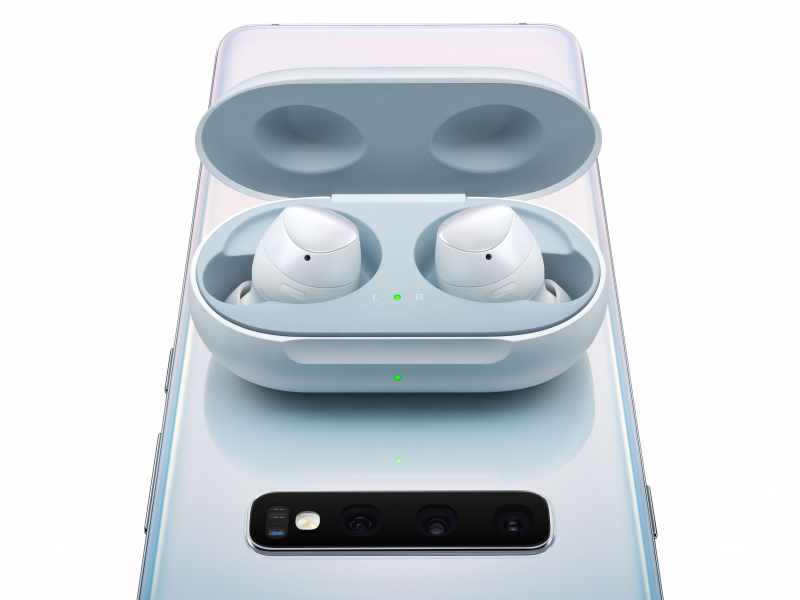
Source: Business Insider
Something that may factor into your earbuds decision is the type of smartphone you own. Apple and Samsung have designed their earbuds to be the most functional and useful when paired with their own phones.

Opening your AirPods case will prompt them to connect to the nearest Apple device, meaning you can pair them in one click. AirPods work with Android phones too, but you'll have to connect via the Bluetooth menu.
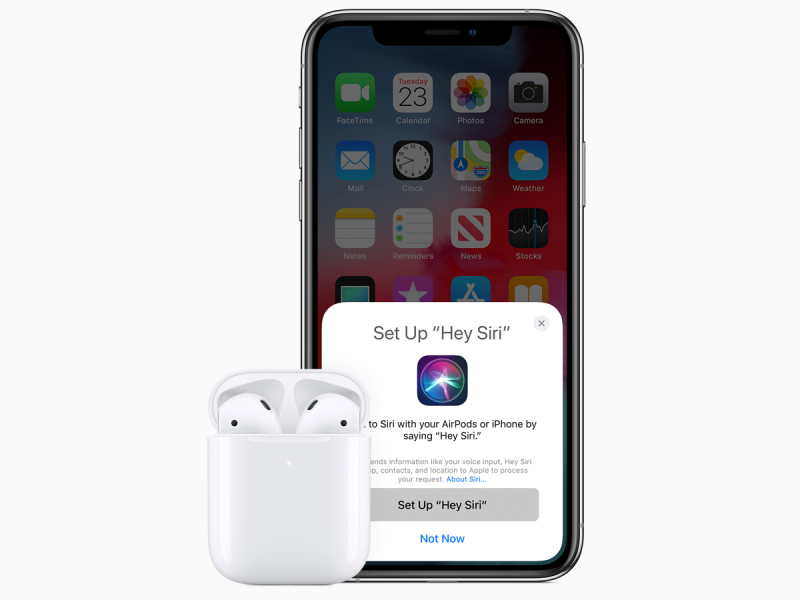
Source: Business Insider
The AirPods let you adjust the controls, so you can choose what happens when you double-tap on each earbud. Locate your AirPods in the list of connected devices under the Bluetooth tab, then click the blue letter I to access the AirPods' settings.

Pairing Galaxy Buds with Galaxy phones is pretty similar to pairing AirPods with Apple devices. Opening the case will cause a pop-up window to appear to connect the devices. For iOS devices, you can select the Galaxy Buds from the list of available Bluetooth devices.

Source: CNET
It's pretty easy to connect Galaxy Buds to a Galaxy phone, as you might expect, but it gets tricky for other Android phones: You'll need to download both the SmartThings and the Galaxy Wearable apps to make it work. No matter which phone you use the Buds with, the controls aren't as customizable as the AirPods' either.

When it comes to using the earbuds, I found there were drastic differences in sound quality. I used a song with heavy bass notes — "River" by Bishop Briggs — to test the sound. The AirPods' sound quality was great, in line with other headphones and earbuds I've used over the years.
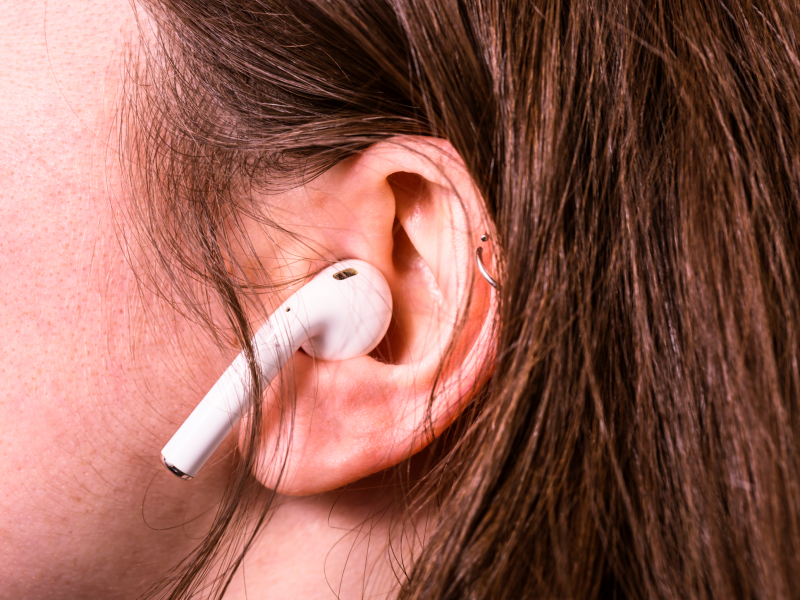
However, the lack of bass was noticeable when I listened to the same song with the Galaxy Buds. Even with the volume all the way up and the equalizer setting in the app on "bass boost," the bass didn't come through as strongly as I would've liked.
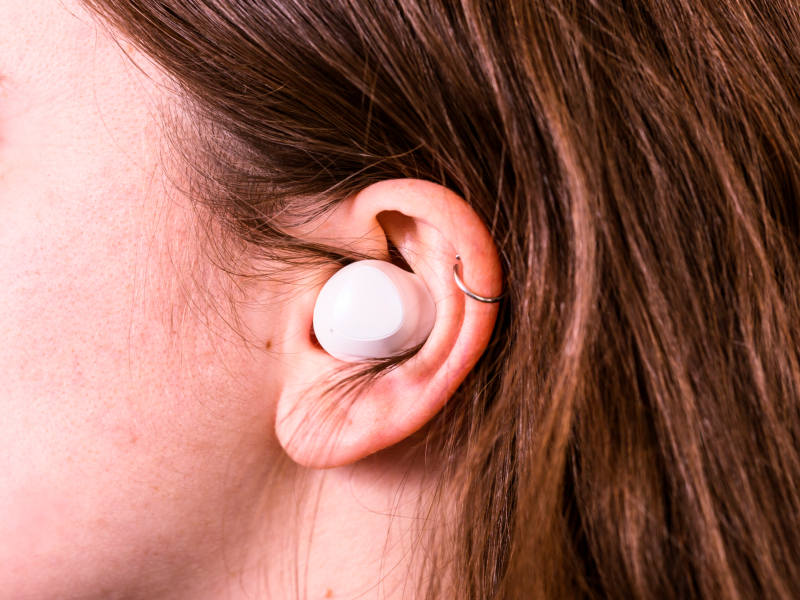
The second-generation AirPods are available only in white and cost $199. The new wireless-charging case is compatible with older AirPods — a nice bonus — and can be snagged for $80 on its own.
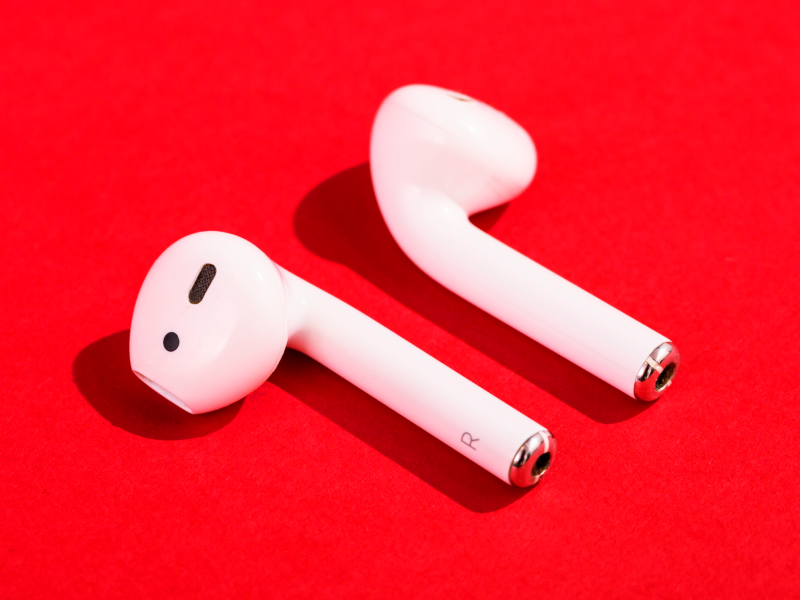
Source: Apple
Samsung's Galaxy Buds come in three colors: white, black, and yellow. The Buds also come in cheaper than the AirPods, at $130.
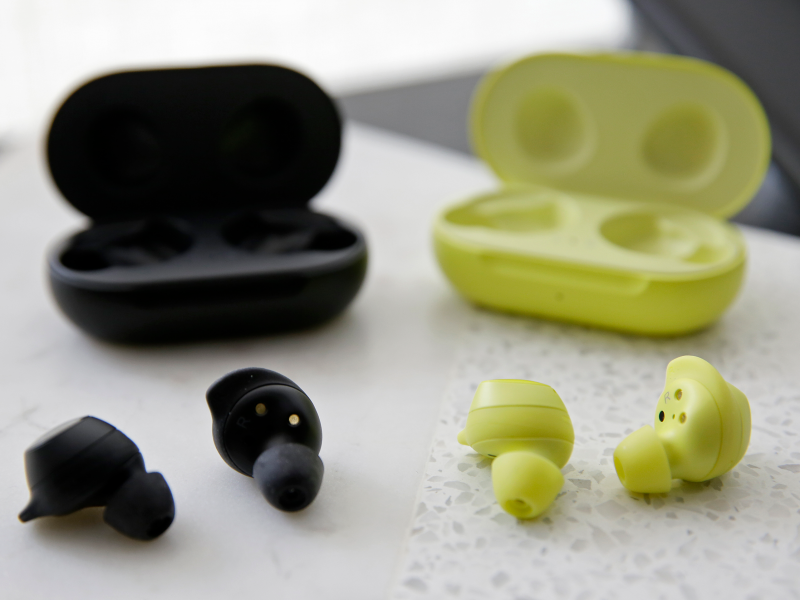
Source: Samsung

